7 Days is a weekly roundup of the Editors' picks of what's been happening in the world of technology - written with a dash of humor, a hint of exasperation, and an endless supply of (Irish) coffee.

It’s been another thrilling week across the tech world, with some exciting announcements, a few spicy rumors, some big surprises, and some bigger disappointments. But don’t worry about missing anything, for once again, 7 Days is here to walk you through what’s been happening.
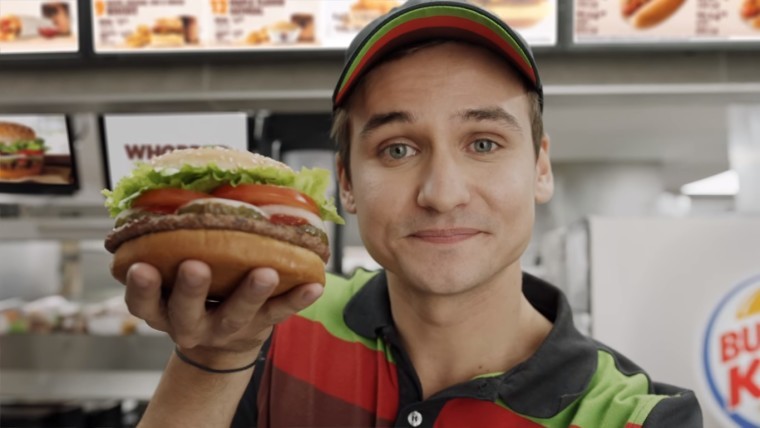
Our journey begins this week in the world of fast food, as Burger King created a TV ad designed to trigger Google's Home speaker hub and digital Assistant in people's homes, by ending with "OK Google, what is a Whopper burger?" That should then have got Google Home and Assistant to read out the description of the Whopper from Wikipedia - but the Wikipedia entry was quickly edited to suggest that the Whopper contains "rat meat" and "toenail clippings".
In the end, it wasn't Burger King that killed the ads, but Google, which wasn't too happy about its devices being used in that way without its blessing, and blocked its Assistant from responding to the ads.

Google's got much bigger things on its mind anyway - next week, it's planning to introduce "the new Google Earth" with a "brand new experience".

Lineage OS added support for more handsets, including Samsung's Galaxy S III, and the OnePlus One.

And Canonical released Ubuntu 17.04 'Zesty Zapus', bringing a new kernel and removing the default swap partition - although it hasn't yet made the recently-announced switch from Unity to GNOME.

At CES in January 2016, Dell unveiled its stunning 30-inch OLED monitor with 4K resolution. Priced at $4,999, it was due to go on sale in March 2016, but never appeared. Now, over a year later than planned, it's finally available to order - and its price tag has shrunk by 30%.

The US Federal Aviation Administration has given the green light to Boeing's use of 3D-printed titanium aircraft parts for use on its 787 Dreamliner. The move is set to save millions of dollars in production costs for the company.

Meanwhile, the FCC has abandoned plans to enable cellphone calls during flights. Given how obnoxious fellow passengers can be, even without license to scream into their mobile phones at 37,000ft, this seems like a sensible move.
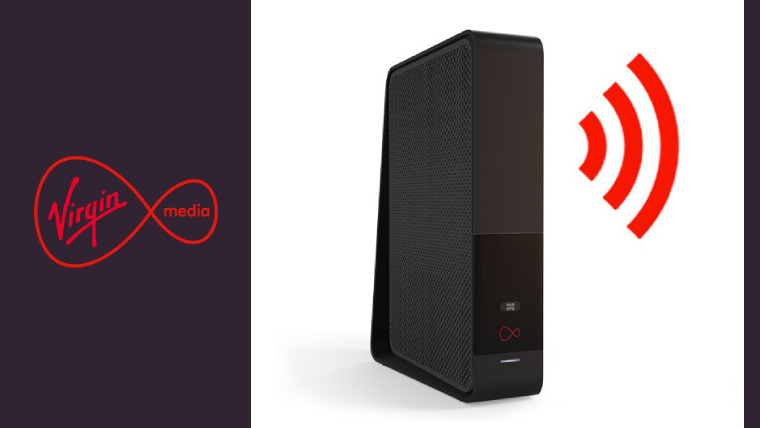
Over in the UK, Virgin Media is turning its home broadband customers' routers into public Wi-Fi hotspots.

Kodi, frustrated by its software being misused for content piracy, is now considering adding DRM support to its products.

A new strain of ransomware has been doing the rounds lately, demanding that you play a game and unlock your data by reaching a high score.

Hacking group Shadow Brokers published a range of tools used to exploit vulnerabilities in Windows versions all the way back to Windows 2000 - but Microsoft said that it had already patched most of those security flaws.

Microsoft published its latest transparency reports, including details on law enforcement requests for information about its customers.

Microsoft and Chinese tech giant Tencent were among the investors in the latest $1.4 billion funding round for Indian online retailer Flipkart. More significantly, Flipkart is now taking over eBay India, while eBay is taking an equity stake in Flipkart as part of a $500 million investment.

Microsoft released a new Office Insider Preview for Windows users in the Slow ring, bringing new features such as collaborative editing in Excel.

It released a new Outlook for Mac preview for Office Insiders in the Fast ring too, adding support for email templates.
But separately, it also launched another Outlook for Mac preview, available to everyone. The standalone preview program does not require an Office 365 subscription, unlike the Office Insider Program.

Rumors in recent months suggested that Apple had abandoned its self-driving car project in favor of working with existing manufacturers to develop software for use in their vehicles. It's still not clear exactly what Apple has planned, but this week, the company received a permit to test autonomous vehicles in California.
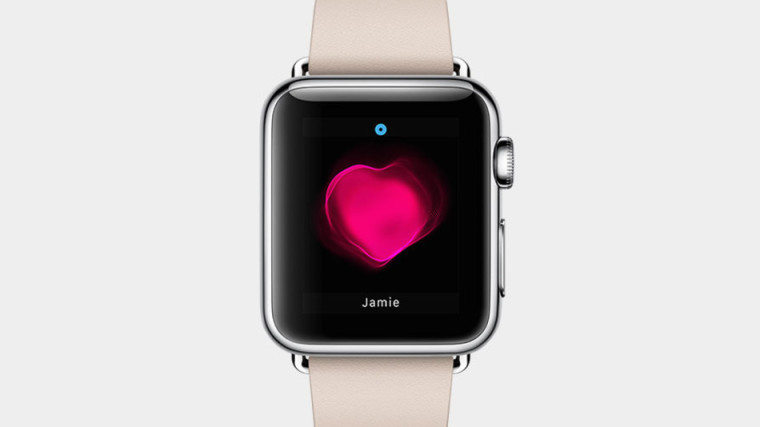
Meanwhile, Apple is reportedly working on a secretive project to expand the healthcare benefits of its Watch. The company is said to be developing sensors that can non-invasively monitor blood sugar levels for diabetics, similar to the heart-rate sensors on its existing wearable devices.

In rather more mundane news, Apple also released its second developer betas for iOS 10.3.2, macOS 10.12.5, watchOS 3.2.2, and tvOS 10.2.1; followed by the second public betas of those iOS and macOS versions.

Apple is being sued by Qualcomm, which alleges that the iPhone-maker deliberately limited its chips' performance so that they wouldn't outperform those sold by Intel.
Qualcomm didn't have a great week, as it was ordered to refund $815 million to BlackBerry, which was found to have overpaid the chip-manufacturer. The ruling came after a period of arbitration, and cannot be appealed, so while Qualcomm made it clear it "does not agree with the decision", it has no choice but to pay up and shut up.

The latest smartphone sales market share data from Kantar Worldpanel shows further gains for Android in many key markets, with iOS holding steady in most parts of the world - except in China, where demand for iPhones plummeted year-over-year. Windows phone sales remain in freefall, unsurprisingly.

After months of leaks and rumors, HTC officially unveiled its new One X10, a mid-range handset with a 5.5-inch 1080p display, octa-core processor, and a very generous 4000mAh battery.
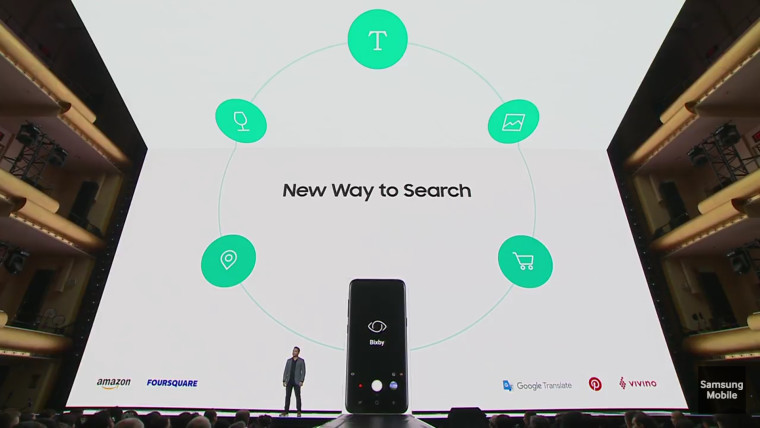
There was very surprising news from Samsung this week. After it became clear that its new 'intelligent assistant' Bixby would be far more limited at launch than Samsung had implied on stage at its Galaxy S8 announcement, the company has now admitted that its new flagship will launch in the US without support for Bixby voice controls.
Samsung also tweeted that the Galaxy S8 and S8+ will launch in India on April 19, before deleting that tweet. It also seems that AT&T will be exclusively launching a Galaxy S8 active, following similar 'rugged' versions of the S6 and S7.

If you've ever found yourself asking "what's the point of a smartwatch?", you're not alone. In fact, Huawei's CEO made the same point this week - shortly after launching his company's two new smartwatches - saying: "I am confused as to what smartwatches are for when we have smartphones."

ZTE unveiled an affordable Android Wear 2.0 smartwatch with a 1.4-inch AMOLED display, priced at $192. Unfortunately, it doesn't have NFC support, which means no Android Pay. That seems like a bit of a missed opportunity.

And while LG updated its first-gen Watch Urbane to Android Wear 2.0 last week, the company said the update won't be available for its second-gen model until next month.

Nearly eight months after Google released Android 7.0, its long, slow rollout continues, reaching more devices this week:
- Google updates Nexus 6P beta testers to final build of Android 7.1.2
- Android 7.1.1 now available for Nokia 6
- Samsung Galaxy Note5 and Galaxy S6 edge+ get Android 7.0 on AT&T
- Samsung Galaxy Note5 and Galaxy S6 edge+ get Android 7.0 on Verizon
- Android 7.0 rolls out to Samsung Galaxy S6 and S6 edge on Sprint
- HTC One M9 finally gets Android 7.0 on Sprint... with February security update

While the February security update reached the One M9 on Sprint, HTC rolled out the March security patches for unlocked models of that device.

Wileyfox began its migration away from the now-defunct Cyanogen OS to Android 7.1.1 Nougat, starting with its Spark 2X handset.
Intriguingly, Wileyfox also revealed that it's making a Windows phone, saying that "Windows is much better for security than Android". That might comes as a surprise, until you realize that Wileyfox was funded by the same company that owned UK handset brand KAZAM, which also made Windows phones, until it was "absorbed" into Wileyfox last year, although they're still both registered as separate companies.
Speaking of which:

HP's pricing for its Elite x3 Windows 10 Mobile flagship in the UK has made absolutely no sense over the last few months. In the last two months, the handset and Desk Dock have been priced at £673, then £707, £757, £702, and back to £673 again - and now, that bundle is available for £583, with a £90-off voucher code.

In the US, T-Mobile has ended sales of Alcatel's Windows 10 Mobile flagship, just six months after its launch, and two months after slashing its price by a third. While Microsoft is continuing to sell the unlocked Alcatel IDOL 4S with Windows 10 for $400, Amazon is now offering it for just $284.99.
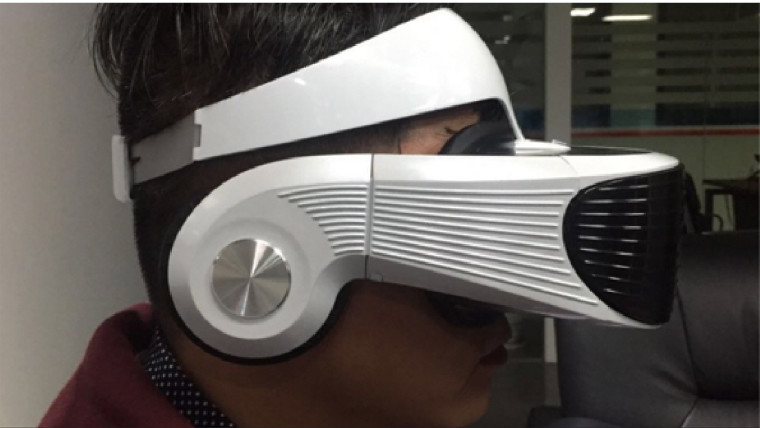
Two weeks after WhartonBrooks launched crowdfunding efforts for its "most disruptive" "radical" fairly ordinary mid-range Windows 10 Mobile phone - the Cerulean Moment, priced at $299 - the Indiegogo campaign has so far reached just 2% of its $1.1 million target, with one month remaining.
But WhartonBrooks is already looking to the future, planning a virtual reality headset, and four more Windows phones targeting a range of different users. That's ambitious, given how poorly the company has managed expectations so far, and how far removed the Moment is from the absurd promises and astonishing hype that WhartonBrooks generated around the device before it was finally unveiled, months later than planned.

The Lumia 750 - one of several Windows phones that Microsoft cancelled when it ripped up its mobile strategy - made an appearance in an unofficial video this week.

On April 25, Microsoft will release the Windows 10 Mobile Creators Update - but as feared, it won't be made available to all handsets currently supported by the OS. Microsoft confirmed on Friday that just thirteen handsets will officially receive the update, leaving many devices - including some that are still on sale today - unable to upgrade to the newest version of the OS.
Those older phones will still be able to install the Creators Update via the Windows Insider Program Release Preview ring - but they will not be officially supported.

Microsoft also released build 15204 for Windows 10 Mobile - its first build from the Redstone 3 development branch - but its build number is much lower than that of the latest build for PCs, raising further questions about the future of the smartphone version of the OS.
Microsoft insists that the reason for the divergence in build numbers for Windows 10 Mobile compared with PCs is because it's 'converging code into OneCore', which has left many people scratching their heads.
Meanwhile, Microsoft dropped key features that it announced for the Windows 10 Mobile Creators Update, and it's far from clear if they'll ever make it to devices. Indeed, with only 13 handsets supported, and its development now lagging far behind that of PCs, it's starting to look an awful lot like Windows 10 Mobile is being switched to a Windows Phone 7.8-style 'maintenance' branch, leading nowhere but a dead end.

The latest Redstone 3 preview for PCs rolled out on the same day that Microsoft made its unwelcome Mobile announcement. Build 16176 is now available for PCs in the Fast ring, and you can see the fixes and known issues here.

On Tuesday, Microsoft began its rollout of the Windows 10 Creators Update (developed under the Redstone 2 codename) for PCs:
- Overview of new features and improvements
- How to install the Creators Update right now
- A closer look at changes to privacy settings
- How to download and read e-books from the Windows Store in the Creators Update
- Windows 10 Creators Update: Microsoft Edge beats rivals in battery performance yet again
- Evaluation ISOs for Enterprise customers now available
- New firmware available for Surface Book and Surface Pro 4 running Creators Update

Microsoft released updates for every version of Windows 10 this week, on PCs and phones:
- build 15063.138 (cumulative update for the Creators Update / Version 1703)
- builds 14393.1066 and 14393.1083 (Anniversary Update / Version 1607)
- build 10586.873 (November Update / Version 1511)
- build 10240.17354 (the original Windows 10 release, also known as Version 1507)
Microsoft confirmed that it will officially end support for Version 1507 on May 9, 2017.

Microsoft has also started blocking updates for older versions of Windows running on PCs with newer processors, as it tries to force those users to upgrade to Windows 10.

Microsoft is reportedly working on a new 'Tabbed Shell' for a future Windows 10 update, which would allow users to run multiple instances of the same app in a single window, with tabs to switch between them, much like a web browser.

Microsoft sent out invitations for its next big event, which will be held on May 2 in New York City. With the hashtag '#MicrosoftEDU', it seems that it may have a focus on education - but it's widely expected to also discuss its new Windows 10 Cloud edition at the event. However, it's not expected to unveil the much-anticipated Surface Pro 5 there.
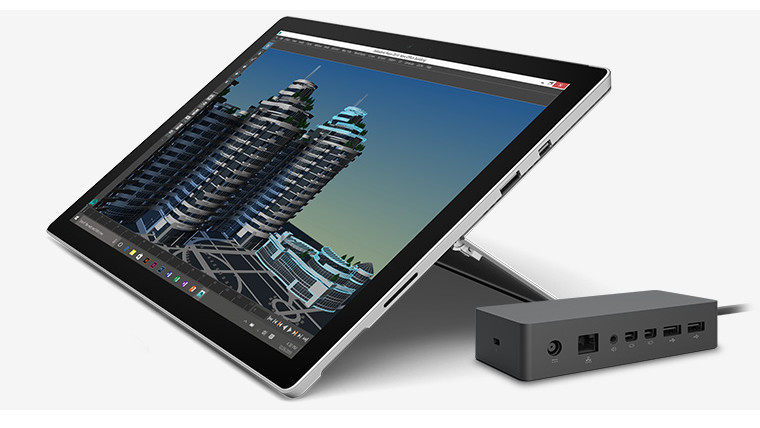
Microsoft is including a free Surface Dock worth $199.99 with purchases of any Surface Pro 4 tablet in the United States, including the $799 entry-level model, which has an Intel Core m3 CPU, 4GB RAM and 128GB - but no Surface Pen.

Leaked images revealed a new family of Windows 10 devices on the way from Huawei...

...while HP officially announced its new range of affordable Windows 10 notebooks and convertibles, with support for Windows Hello facial recognition, and active pens.

Amazon is making it easier for companies to use its microphone and voice recognition technology to build devices that use its Alexa digital assistant, by making its reference design available to hardware partners.

We've known for a while that Harman Kardon is working on a new speaker powered by Microsoft's Cortana digital assistant. This week, it emerged that that device will be called the 'Invoke', and will feature Skype integration - and it seems that Microsoft may be planning to invite select Windows Insiders to provide feedback on the device.
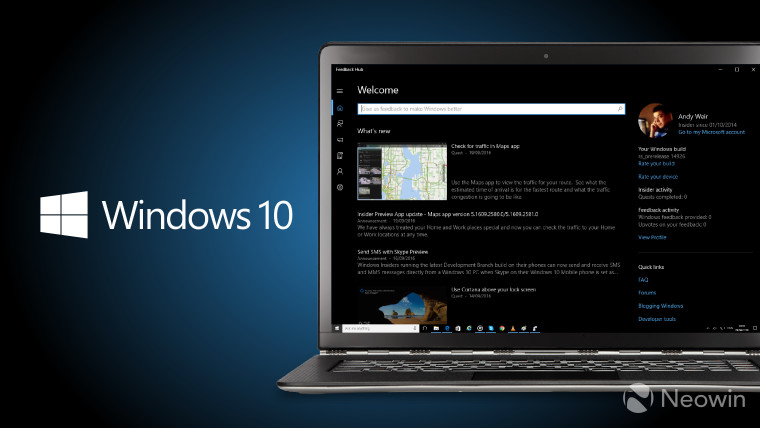
Microsoft is making it a bit easier for users to share their feedback with the company. Starting with those in the Windows Insider Fast ring, it's now adding the ability to directly share content from across the OS to the Feedback Hub, making it simpler to report issues.

Last year, Microsoft shipped the Windows 10 Anniversary Update with the half-baked 'Skype Preview' app as its default communication experience. After months of development - and months of endless frustrations for its users - Microsoft finally dropped the 'Preview' tag with the rollout of the Windows 10 Creators Update. It says the new Skype app is now "ready for everyday use".

The "all-new Skype app" - in reality, just the newest update of the UWP version that's been in preview on PCs and phones since last year - is now available on the Xbox One too. Microsoft said that its interface has been "redesigned to put gamers first."

Microsoft is introducing "self-service refunds" for apps and games on Windows 10 and the Xbox One.

On Thursday, Microsoft released the Version 1704 update to all Xbox One users, bringing numerous "fan-inspired" features to its consoles.

And after offering early access to its new Xbox Game Pass for the Xbox Insider Alpha and Beta Rings, Microsoft has now expanded preview availability to Ring 3. Xbox Game Pass will offer unlimited access to over 100 games for $10 a month when it launches this spring.

Microsoft's Project Scorpio dev kit was revealed on Wednesday, with a similar design to the Xbox One S. The dev kit is even more powerful than the final console will be, and has some distinctive features, including double the RAM of the production model, and an OLED display on the front.
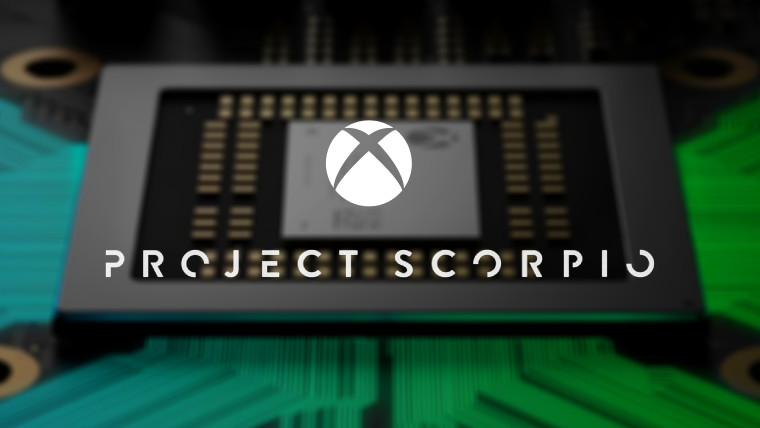
Microsoft confirmed that Project Scorpio, which it calls "the most powerful console ever", will be officially unveiled at the E3 gaming expo in June. It also revealed this week that Scorpio will support FreeSync and HDMI 2.1 Variable Refresh.
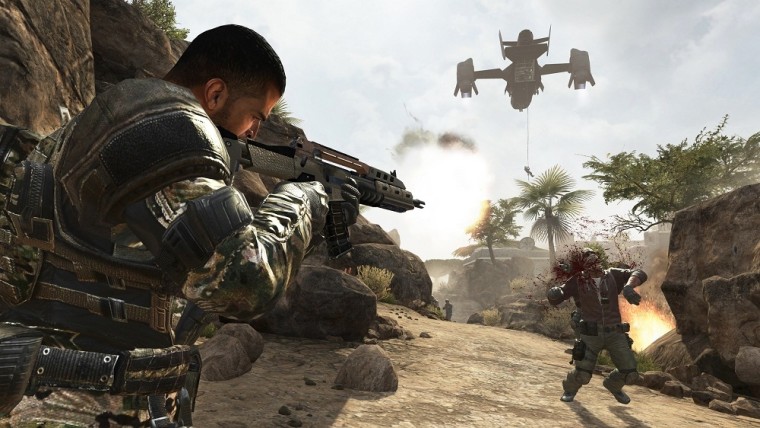
Call of Duty: Black Ops II was the latest (and very welcome!) addition to the list of Xbox 360 games playable on the Xbox One through the Backward Compatibility program.

Microsoft is launching an official store for "community-made goodies" in Minecraft with curated content from nine professional partners, which players will pay for with new Minecraft Coins.

And this news will probably come as no surprise, given that Minecraft is pretty much everywhere else - but Microsoft is launching its blocky, world-building game on the Nintendo Switch on May 11.

Perhaps the most shocking news of the week was that Nintendo has officially ended production of its wonderful NES Classic Edition console. Despite enormous demand for the retro machine, Nintendo has apparently decided that it just doesn't want your money.

Perhaps this guy has the right idea: a gamer built his own tiny console that squeezes into a tin of mints, powered by the brilliant Raspberry Pi micro-computer. Check out Zelda and Donkey Kong on that dinky screen!

And if you think that's cool, make sure you check out HoloLems, bringing virtual reality Lemmings to your living room!

But our odyssey across the tech world ends this week as it began: with fast food.
Now, if you'll excuse me, I'm off to find me some nuggs.
Bonus content
Before we wrap things up for another week, let me first highlight a couple of extra bits around the site that I hope you’ll enjoy reading.

Rich Woods put HP's new Spectre x360 through its paces. The Windows 10 convertible device earned itself an exceptionally high score in his review, making it one of the best devices we've ever tested - thanks in no small part to its 4K display and active pen support.

And Justin Luna took a trip down Memory Lane with the help of Timi Cantisano, as Microsoft terminated its extended support for Windows Vista this week. Vista was pretty, but went largely unloved, and never achieved the popularity of its successor, Windows 7.
RIP.
Stay tuned to Neowin in the days ahead for what’s sure to be another exciting week, filled with official news, lots of updates, and plenty of insights from around the world of technology.
For now, though, there’s lots more to read across the site – including all sorts of interesting discussions over on our forums.
From all of us
on the Neowin team,
have a great weekend!

















